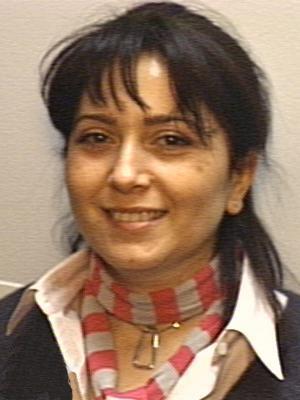Research Interests
The principal function of the immune system is to ensure that infection and cancer are controlled. This function requires a complex network that ensures the correct activation and termination of specific responses so that the task is achieved successfully and without inappropriate harm to the host (autoimmunity). Effective immunity requires the coordinated activation of both innate and adaptive immune responses. This coordination is mediated by a network of interaction between different components of the immune system not only to ensure that the host is equipped to effectively control attacks from pathogens and curb malignancies but that damage to the host is minimized during the process. Natural killer (NK) cells and dendritic cells (DC) emerged recently as a couple of innate effectors, the reciprocal interaction of which results in a potent activating cross-talk that provides immunologists with a new scenario to be examined in detail. Our challenge is to integrate in this new scenario the role of TGF b -mediated immunosuppression . The overall long-term goal of our laboratory is to understand the mechanisms of immunosuppression at the interface between innate and adaptive immunity. Basic science supporting this area of research is critical to enhance the power of innate effector cells as therapeutic tools to strategically manipulate the immune system in the clinic to fight autoimmune diseases, tumor growth and pathogen invasion.
Research Opportunities for Rotating Students
Publications
Farr AR, Wu W, Choi B, Cavalcoli JD, Laouar Y. CD1d-unrestricted NKT cells are endowed with a hybrid function far superior than that of iNKT cells. PNAS. 2014. pii: 201323405.
Speck S, Lim J, Shelake S, Matka M, Stoddard J, Farr A, Kuchroo V, Laouar Y. TGF-β signaling initiated in dendritic cells instructs suppressive effects on Th17 differentiation at the site of neuroinflammation. PLoS One. 2014. 9(7):e102390.
Marcoe JP, Lim JR, Schaubert KL, Fodil-Cornu N, Matka M, McCubbrey AL, Farr AR, Vidal SM, Laouar Y. TGF-β is responsible for NK cell immaturity during ontogeny and increased susceptibility to infection during mouse infancy. Nature Immunology. 2012. 13(9):843-50.
Laouar Y, Town T, Jeng D, Tran E, Wan Y, Kuchroo VK, Flavell RA. TGFβ signaling in dendritic cells is a prerequisite for the control of autoimmune encephalomyelitis. PNAS. 2008. 105(31):10865-70.
Town Y, Laouar Y, Pittenger C, Mori T, Tan T, Duman RS, Flavell RA. Blocking TGF-b innate immune signaling mitigates Alzheimer-like pathology in transgenic mice. Nature Medicine. 2008. 14(6):681-7.
Laouar Y, Sutterwala. FS, Gorelik. L, Flavell. RA. TGFβ controls TH1 development through regulation of NK cell IFNγ. Nature Immunology. 2005.6(6):600-7.
Laouar Y, Peng Y, Laouar Y, Li MO, Green EA, Flavell RA. TGF-β regulates in vivo expansion of Foxp3-expressing CD4+CD25+ regulatory T cells responsible for protection against diabetes. PNAS. 2004. 101(13):4572-7.
Laouar Y, Crispe IN, Flavell RA. Overexpression of IL-7Ra provides a competitive advantage during early T-cell development. Blood. 2004. 103(6):1985-94.
Laouar Y, Welte T, Fu XY, Flavell RA. STAT3 is required for Flt3L-dependent dendritic cell differentiation. Immunity. 2003. 19(6):903-12.
Laouar Y, Goelik L, Flavell RA. Immune-mediated eradication of tumorsthrough the blockade of Transforming Growth Factor-β signaling in T cells.Directions in Science. 2002. (1):113-115.
Laouar Y, Crispe IN. Functional flexibility in T cells: independent regulation of CD4+ T cell proliferation and effector function in vivo. Immunity. 2000. 13(3):291-301.

